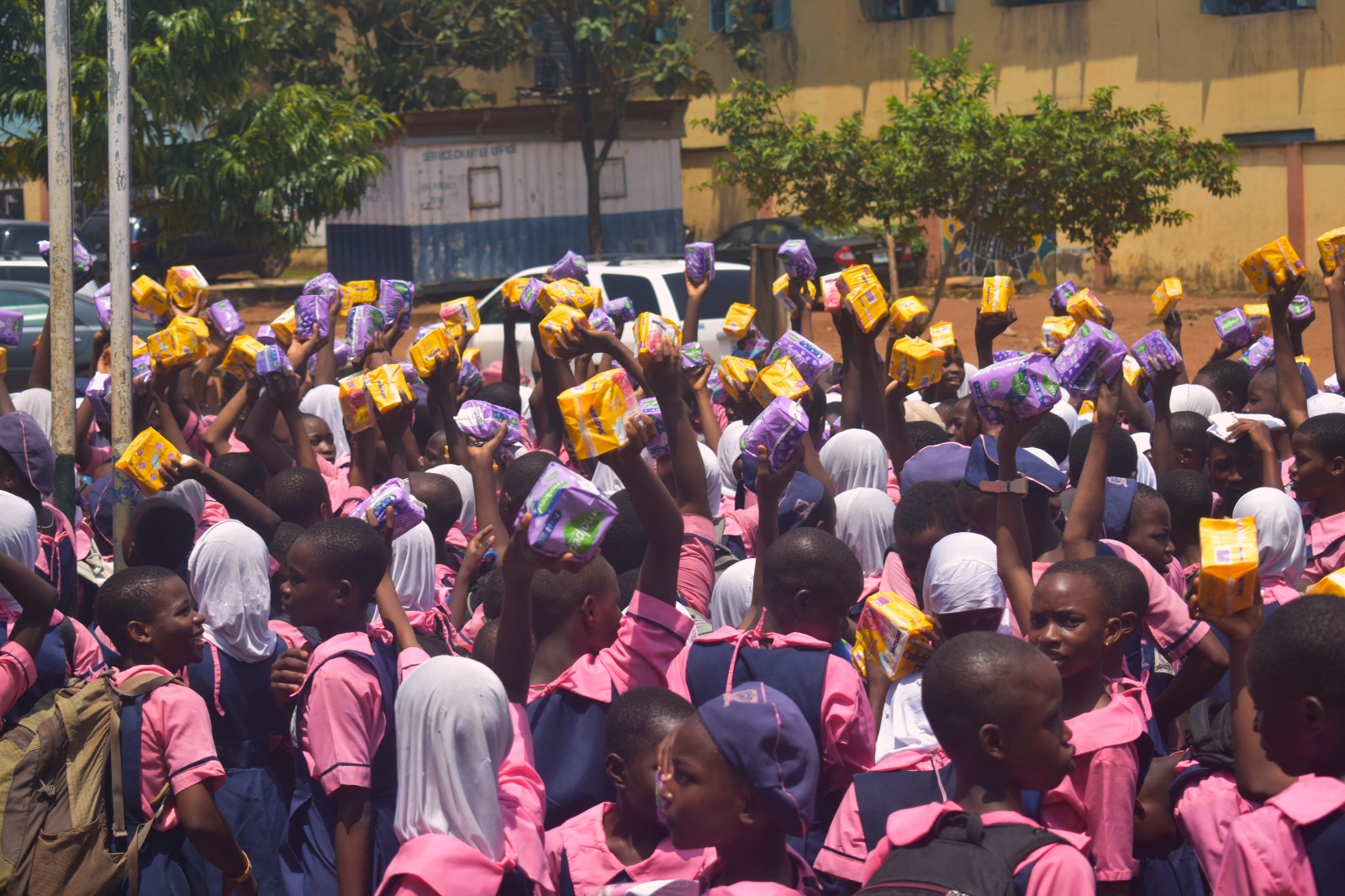 The Women’s Rights and Health Project (WRAHP) has said that effective sensitisation of young girls on menstrual hygiene and health will help to curb period poverty.
The Women’s Rights and Health Project (WRAHP) has said that effective sensitisation of young girls on menstrual hygiene and health will help to curb period poverty.
[ad]
The Founder, WRAHP, Bose Ironsi, who made the assertion during a one-day sensitisation programme on menstrual hygiene at Ijegun Comprehensive Grammar School, Alimosho Local Council, Lagos State, noted that paucity of fund, low sensitisation and ignorance were the major causes of period poverty.
According to her, some girls stay out of school during menstruation thereby predisposing them to sexual activity for funds to solve their welfare needs.
The programme, which was organised in partnership with SimplyGirls and AB Microfinance Bank, was aimed at educating 1,000 young girls on pubertal changes and the need to observe proper hygiene practices during menstruation. It was also used to provide basic information to the participants about their rights even as free sanitary pads were distributed to the students at the end of the programme.
According to the organisers, the discovery that the ratio of young girls that can afford sanitary towels was low necessitated the programme.
“We organised a sensitisation and found that many female students could not afford safe menstrual practices below N200. So, we thought about providing items needed to promote menstrual hygiene. The plan is to give them sanitary pads every month,” the Programmes Manager, SimplyGirls, Dubem Ironsi, said.
Educating the students on the menstrual cycle and hygiene, Medical Officer, Isolo General Hospital, Dr. Titilade Omojowolo, asserted that women with poor menstrual hygiene were susceptible to infections, which could result in infertility if not properly treated.
“Poor menstrual hygiene leads to infections. These infections can lead to Pelvic Inflammatory Disease (PID) like Bacterial Vaginosis, Candidiasis and Syphilis. If these are not properly taken care of, it could result in infertility because it ascends to the Fallopian Tube and blocks the tube,” she added.
Debunking myths around menstruation, Omojowolo noted: “You must have been told that when you are on your period, you are unclean. You should not eat certain foods or go to school. These are not facts. Your menstrual period does restrict you from continuing with your routines.”
Branch Manager, AB Microfinance Bank, Ikotun branch, Cynthia Amata, said the bank was committed to the consistency and continuity of the project annually with a vision to expand its reach.
Head Girl, Ijegun Comprehensive High School, Odunlade Ibukun, applauded the initiative, saying that hosting it periodically would help curtail issues that arise as a result of poor hygiene during menstruation.
[ad]


